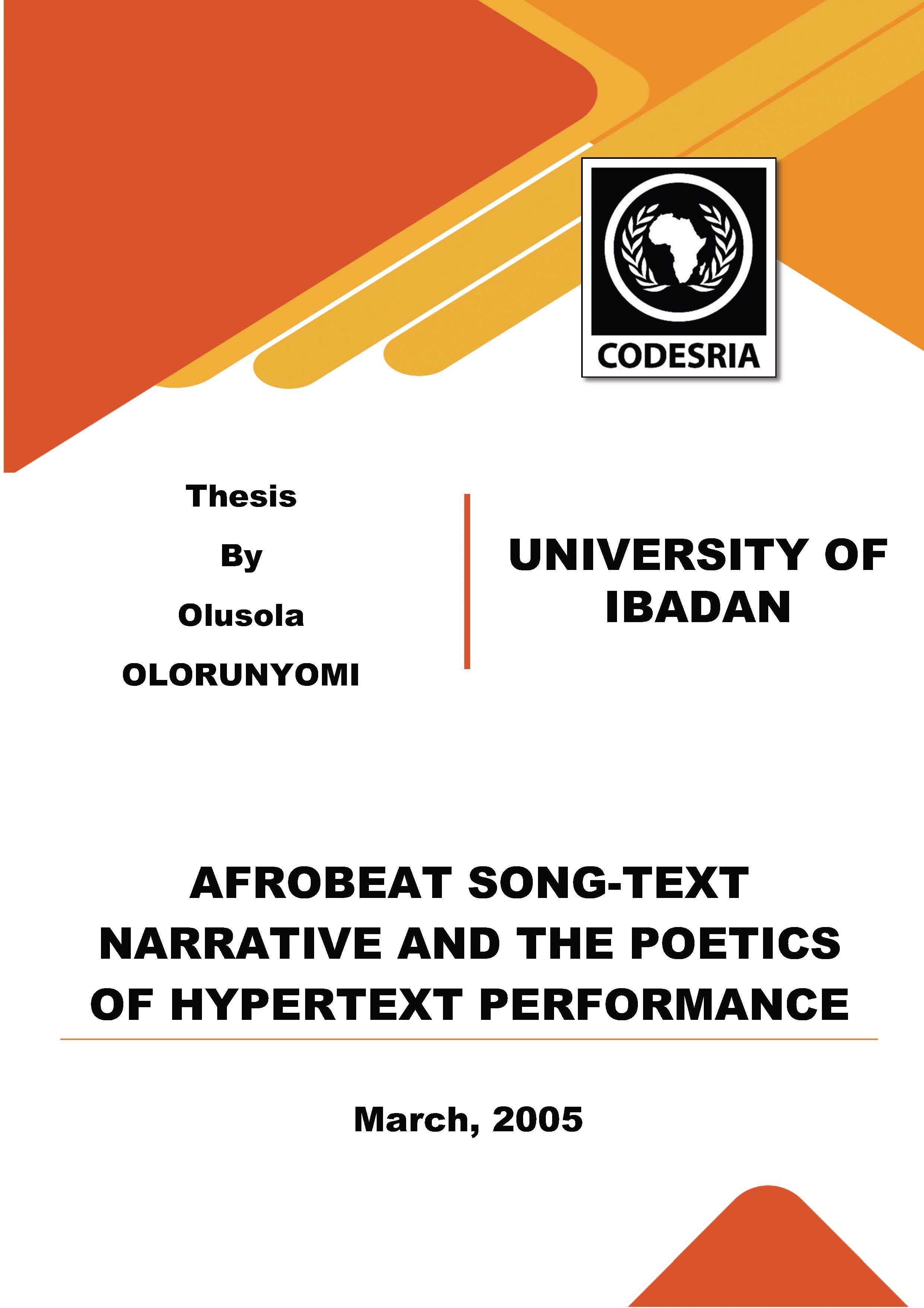AFROBEAT SONG-TEXT NARRATIVE AND THE POETICS OF HYPERTEXT PERFORMANCE
Keywords:
Afrobeat, Song-Text narrative, Hypertext, Poetics, PerformanceSynopsis
The discourse of orality in contemporary Africanist scholarship is largely a discursive formation, and a site of ideological struggle for self-representation in contesting imposed colonialist master narrative. The concept of orality has continued to shape scholarly discourses in addition to informing creative production. This discursive formation is equally mformed by the broad canons that bave come to shape literaiy and cultural studies, especially in the electronic, multimédia âge. By using the Afrobeat genre of music and performance as a major reference point in this study, the intention is two-fold. to explore the tbeoretical overlaps that are implicit in such a discourse, and to bring into focus the theorizing of the "self by the aesthetic subculture, in order not to foist arbitrary theory on a form that can express a subtle but very profound mode of signification.
Given the multi-genre nature of the enquiry and its peculiar mode as a text, it is more appropriate to combine theoretical frames in conducting the analysis. The informing theoretical principle underlying the evaluation is performance theory. This is found to be quite apt in view of the usual need to justify the context of performance and the potential of this paradigm to deploy semioticresources for textual appreciation. To this extent, the study made use of oral interviews primarily from Lagos, Ibadan, Accra, and Abidjan where, in addition to Fela Anikulapo-Kuti, artists like Tony Allen, Dele Sosinmi, Fasail Helwani and Werewere Liking were observed. Furthermore, video recordings were made. These raw data were transcribed, sometimes translated, and classified for flirther analysis.
The findings revealed the new direction of composition, performance, and transmission of oral literature/performance and its secondary variant such as Affobeat, in the electronic âge. In addition, it also calls attention to the changing context of intellectual property rights as evinced in digital sampling and manipulation, especially by the new Afrobeat acts. The research flirther demonstrated that a good measure of theoretical msights that inform canon formation, can be provided by the performers themselves, even when such perspectives may lack the finesse of standard académie practices.
Based on these findings, the field of oral literature, and the ancillary discipline of cultural studies, can now benefit from a paradigm shift in the conceptualization of contemporary performance mode. Scholarship in the field is :further strengthened to acknowledge modes of textuality earlier ignored by virtue of inadequate approaches that had sought to foist extemal criteria on the African creative experience.
Downloads
References
Ajayi, Omofolabo Soyinka. Yorîibâ Dcince: The Semiotics of Movement cmd Bocly Attitude in a Nigérian Culture. New Jersey: African World Press, 1998.
Akoha, Albert Bienvenu. "Graphie Representational Systems in Precolonial Africa." in Endogenous Knowledge: Research Trails. (Ed.) Hountodji, J. Paulin, Dakar: C.ODESRIA, 1997.
Akpabot, Samuel Ekpe. Foundalion oj Nigérian Traditional Music. Ibadan. Spectium Books, 1986.
Albert, O. Isaac et al. Urban Management and Urbcm Violence in Africa. Ibadan: IhR.A, 1994.
Anderson, Benedict. Imagined Communities: Réfections on the Origin and Spread oj Nationalisrn. London: Verso, 1983.
Apter, Andrew. Black Critics and Kings: The Hermeneulics of Power Society. London and Chicago: University of Chicago Press, 1992.
Andersen, Benedict. Imagined Comtnunllies: Reflections on the Origln and Spread of Ncitiohcilism. London: Verso, 1983.






